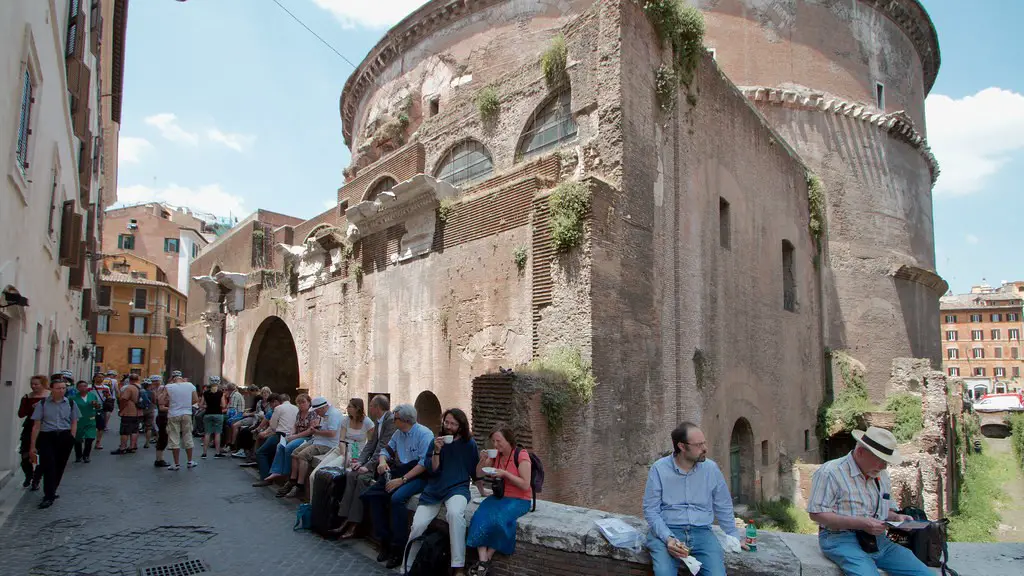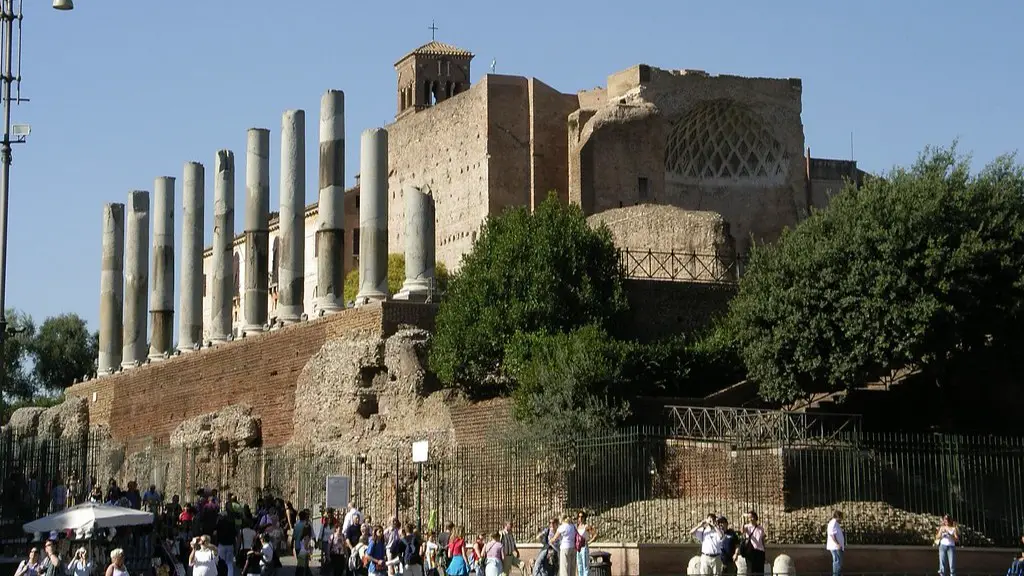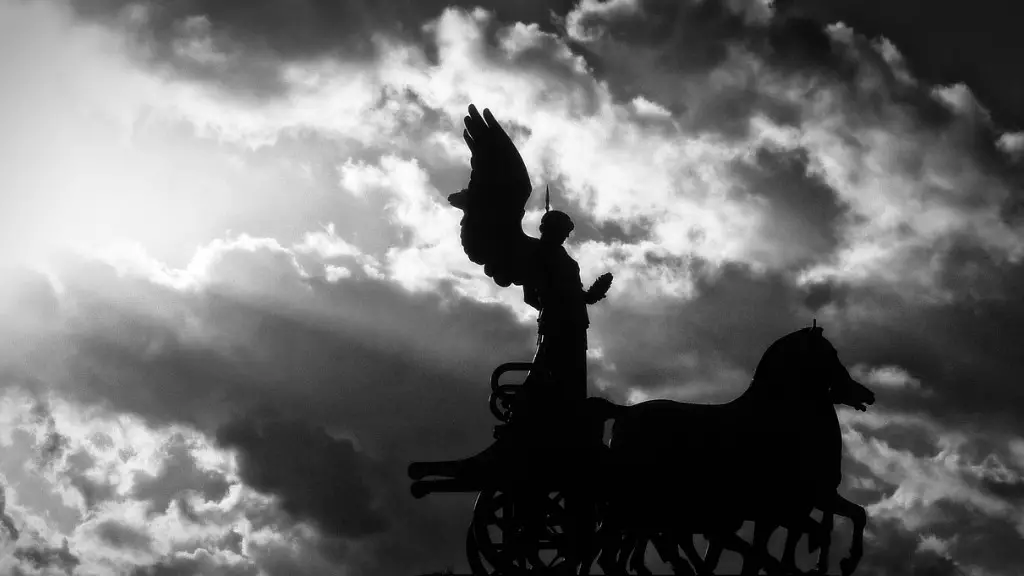Introduction
Ancient Rome, a superpower of its own right, was one of the most influential civilizations of its time. Along with its highly advanced language, literature, engineering, and political structure comes the topic of the Roman religion. Over the course of time, the Romans adopted and modified many of the gods that the Greeks had. This was one of the causes that made the religion of the Roman people so complex and interesting. Why was the religion of Ancient Rome polytheistic?
Historical Significance
From the beginning of recorded history, people have practiced many different types of religion. From the indigenous tribes of North and South America to the diverse people of Africa, Ancient Rome was no different. Ancient Rome was heavily influenced by the gods of the Greeks before them. The main gods of the Romans mainly came from those of the Greeks, each with their own origin. This led to a very confusing set of gods and rituals of worship.
The Ancient Romans believed that their gods protected and guided them in their daily lives, and it was his responsibility to recognize these deities and pay homage to them. The polytheistic system was firmly ingrained in the Roman psyche, and its complexity was part of its appeal. Each god brought something unique to the pantheon, as well as clear rules and boundaries that kept the Romans in check.
Politically, the polytheistic religion of Ancient Rome had a profound impact on the citizens. It was considered honorable to recognize the gods and their wishes, and those that failed to do so were often seen as dishonorable or ignorant. This led to a strengthening of the fabric of Roman society, as citizens strove to exemplify the values of their gods.
Popular Beliefs
The polytheistic religion of Ancient Rome also provided a form of entertainment and social cohesion. From dramas and comedies to massive public rumors, the gods were often the focus of stories and popular culture alike. Temples and other places of worship were also dedicated to the gods, providing citizens with an opportunity to come together and pray or enjoy other activities.
In addition to providing entertainment and gathering places, the polytheistic religion of Ancient Rome also provided a means of communication. Citizens could correspond with the gods through prayers and offerings, and often Gods would reply in kind by providing omens or sending messages through their priests. This system of communication helped keep the citizens in check and provided a way for the gods to protect their people.
The polytheistic system of Ancient Rome also provided the people with a sense of security. Citizens could call upon the gods to provide protection and guidance, and if they ever faced trouble, the gods would often come to the rescue. This was seen as a sign of their immense power, and the people often felt comfort in the gods’ presence.
Ritualistic Practices
Finally, the polytheistic religion of Ancient Rome provided a tool for creating and enforcing ritualistic practices. This was done in order to demonstrate respect to the gods, as well as to honor their requests. Rituals were often specific to each god, involving offerings of goods or services and sometimes even human sacrifices. Such rituals were seen as necessary to keep the gods’ favor and ensure the people’s welfare.
Overall, the polytheistic religion of Ancient Rome was an important part of the cultural and political structure of the time. It provided citizens with entertainment, communication, protection, and ritualistic practices that strengthened their communities and kept them in check. Although the system of worship has changed and evolved over time, its importance to the citizens of Ancient Rome cannot be denied.
Greek Influences
The Ancient Romans adopted and modified many of the gods of the Greeks before them. This was a major factor of why the religion of Ancient Rome became polytheistic. The main gods that the Romans adopted were Zeus, Poseidon, Aphrodite, Ares, Artemis, and Apollo. Each of these gods had its own origin, and the Romans felt that they had to worship them in order to gain their protection in their daily lives.
The Romans also took aspects of the Greek’s beliefs and incorporated them into their own belief system. This was done in order to better understand their gods and rituals. For example, the Romans adopted concepts such as sacrifice, ritual purity, and the Olympian principle from the Greeks. These concepts had significant implications and were important to the development of the Roman pantheon.
Finally, the Ancient Romans believed that their gods had special powers that could help them in their daily lives. Each of the gods had their own domain and generally only helped those in need who truly believed in them. This provided a sense of security to the people and made them more willing to worship and pay homage to their gods.
Conclusion of Greek Influences
The influence of the Greeks on the religion of Ancient Rome is undeniable. The adoption of the main gods of the Greeks, alongside their own beliefs, led to a complex and varied pantheon. This pantheon provided citizens with entertainment, communication, protection, and ritualistic practices that were essential to their lives. The gods were seen as essential to the cultural and political fabric of Ancient Rome, and their influence can still be felt to this day.
Conclusion on Why was the religion of Ancient Rome Polytheistic?
Polytheism was an integral part of Ancient Roman religion. Worshiping multiple gods allowed citizens to feel as though they were getting assistance from above. Additionally, this form of religion provided comfort and protection in the form of omens and communication from the gods. The belief in several gods was a major part of the Roman culture and continues to affect their society today.



